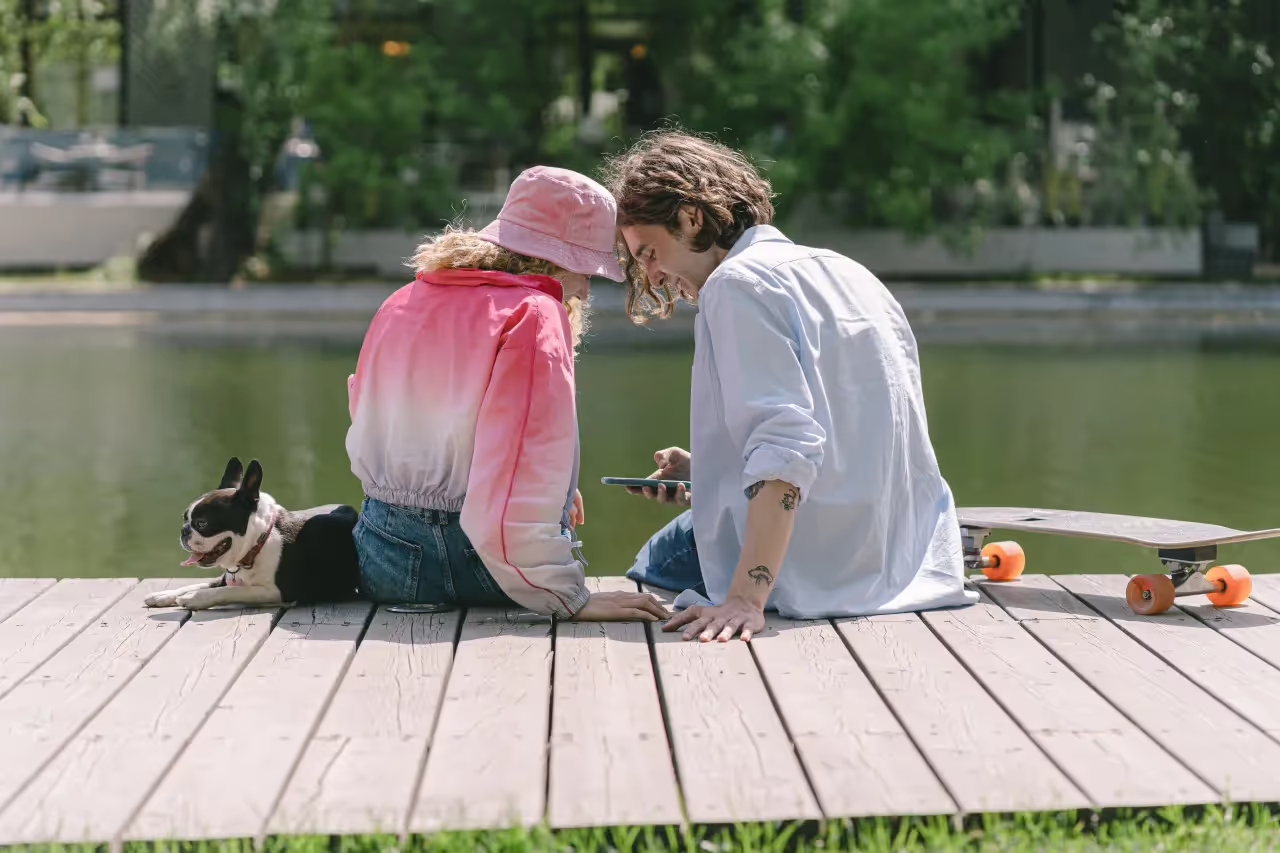Finding love after the death of a spouse or intimate partner presents unique challenges. The grieving journey requires one to navigate the grieving process...

Finding love after the death of a spouse or intimate partner presents unique challenges. The grieving journey requires one to navigate the grieving process and conflicting emotions are common as bereaved partners consider re-entering the dating world.
Acknowledging the personal decision to pursue a new partner is vital, while feeling guilty about moving forward can hinder progress. Readiness is crucial to any successful venture into the dating scene, and the support of family, friends, and bereavement support groups can provide much-needed encouragement.
The grief journey after the death of an intimate can be overwhelming, and many bereaved partners feel guilty as they navigate the emotional turbulence that arises for bereaved partners. The loss of an intimate, such as a late husband or wife, often prompts profound introspection and emotional challenges.
Asking for help from family and friends is also a step in the right direction as they are always enthusiastic to be of service to a loved one no matter how much.
Trust, intimacy, and communication are key in forming meaningful connections with a new partner, and understanding how life transition can raise issues for both the bereaved and their children is essential.
Embracing these realities can lead to a healthier approach to dating websites and the evolving dating landscape.
Jumping into a new relationship too soon after a loss can be a complex, confusing, and emotionally challenging type of life transition that may arise for bereaved partners.
Learning about the dating website scene while also helping new partner children adapt can present unique challenges that arise for bereaved partners. There are general signs to be seen and questions that must be answered before someone can jump back into the dating pool.
One such sign is that the grief caused by the loss of a deceased spouse is no longer an overwhelming burden a person carries every day. Another sign is that a person no longer tries to compare their former spouse with a potential love interest.
No one will ever be able to be all the things someone adored in their lost loved one. Human beings have different qualities and no two persons are the same.
It is unfair to set the bar for potential partners at the same height that one's deceased partner reached. It makes for a relationship ultimately doomed for failure.
There is no set timeline for being ready. It is purely subjective and different people take different times to be properly set to find love again.
Love could be found when a person is not looking for it, but an important consideration before pursuing any love interest after losing a loved one is readiness.

External pressure has a way of making people do things they want or do not want to do.
Such pressure could come from different people.
People will have their opinions on what they think the right choices are to make.
Family or friends may suggest to a person that it is not the right time for a person to begin looking for love.
They may also believe that the time has come to do so.
A person who has loved a lost one must not allow themselves to get cornered into making decisions they are not ready for because of what people around them say.
Grief's uniqueness means that it affects people differently and that they each process it in their own way.
This in turn can translate into varying periods of grief and readiness to find love.
Some make peace with the emotions that come with their grief early and are in a healthy enough state of mind to find love months after their loss.
Others grieve for extended periods which can span decades before they can be open to finding new love.
Family and friends can only guess and give opinions, but it is not their decision to make.
It is a decision with the potential to affect two people and if any of the persons know they are not fully into finding someone new, it is best to follow their feelings.

To find love after loss, a person may have to come to terms with the fact that the dating space may not be how they left it.
One's age, religion, career, etc have effects on what their dating pool may be.
Older couples who found each other will often talk about how different the dating experience was from the way they remembered it being when young.
The age factor as well as other factors can make for a daunting venture for people trying to find love after loss.
This is why there is no shame in asking family and friends for help with the dating space.
They will gladly help in any way they can.
They could give tips on just about anything concerning dating like dressing, conversation, fun, or suitable places to go to.
Family and friends can also go a step further by recommending dates that they find suitable.
The suggestions are usually thought out with attention to possibly compatible values, wants, and dislikes of both people who they are trying to set up with each other.
From the small steps to the big ones, one can mostly trust family and friends to be ready and willing to help and that is why reaching out is a great idea for a person who wants to find love after a loss.
This phrase is clich?? but still makes for great advice.
Finding love is not so easy for most people and it can be easy to have enough bad experiences with dating that finding love after loss does not seem worth the effort.
A person with tales to tell may wash their hands off the dating space for this reason.
Being positive clich?? as it is is what can take a person past the bumps they may find on their quest for love and happiness.
A positive mind is open to new people and experiences.
It helps a person through the bad dates and hopefully to their newly found love.
On the surface, a person may seem alright and indeed they may feel alright, but there may be unresolved issues even if they are not aware of these unresolved issues.
These issues can pop up in new relationships as bad habits and behavior and may be too much for new partners to accept.
There is a chance that a person's reaction to grief is a strong desire to fill in the void left by their loved ones.
This is a vulnerable time and state of mind for people and looking for people or things to fill the void is not uncommon.
decisions made with that volatile state of mind using whatever rationale(conscious and subconscious) almost always never go well in the long run.
A person in that state of mind is willing to ignore a lot of red flags which they would have easily spotted and avoided had they been in a healthy frame of mind.
Guilt that usually comes with trying to find love after a loss should be satisfactorily dealt with as love cannot blossom in the presence of deep-rooted recurrent guilt.
Therapy is a healthy way of digging up these problems and effectively dealing with them to make pave way for healthy future relationships.
Therapy has other benefits.
It can help identify problems in past relationships and how to remove them moving forward.
It helps a person who has just lost a loved one establish proper expectations of themselves, the dating space, and potential love interests.
Having useful tips in hand makes things easier and knowing a thing or two about how to find love after loss is only beneficial to those who are trying to do so or anyone who plans on advising on the topic.
This article contains very useful tips on the matter.
Tips are to make sure one is ready to find love again, to ask friends and family for help, to consider therapy and its benefits, to make their own choices, and lastly to be positive which is clich?? but very effective advice.
https://www.wikihow.com/Date-After-the-Death-of-a-Spouse
https://sixtyandme.com/opening-the-door-to-love-again-after-a-loss/
https://www.joincake.com/blog/how-long-after-a-spouse-dies-is-it-okay-to-date
Complicated grief, also known as prolonged grief disorder, is when intense grief symptoms continue for an extended period, often longer than six months. This type of grief can result in difficulty resuming normal life activities and can lead to sleep problems.
Grief can seem worse in the morning as the reality of the loss is often one of the first thoughts upon waking. This can be particularly true if you shared many mornings with the person who has passed away during wonderful years spent together.
Addressing grief is crucial because unresolved grief can significantly impact your quality of life, overall well-being, and ability to function in daily activities. Left unaddressed, grief can lead to more severe mental health issues, such as depression, anxiety, and complicated grief.
It is not mandatory that all conversations revolve around the issue causing your grief but our therapists will provide guidance on how best to process the situation. You are in control of how much or little you want to share in a session, but it is important to stay open and honest with your therapist for optimal results.
Grief can be particularly intense in the early days following a loss. However, it's not uncommon for grief to become more pronounced at certain times, like at night or in the morning. This can be due to the mind being busy processing the events that happened.
We offer a variety of specialized services, including individual therapy, group therapy, and various therapeutic approaches such as cognitive-behavioral therapy (CBT) or psychodynamic therapy.